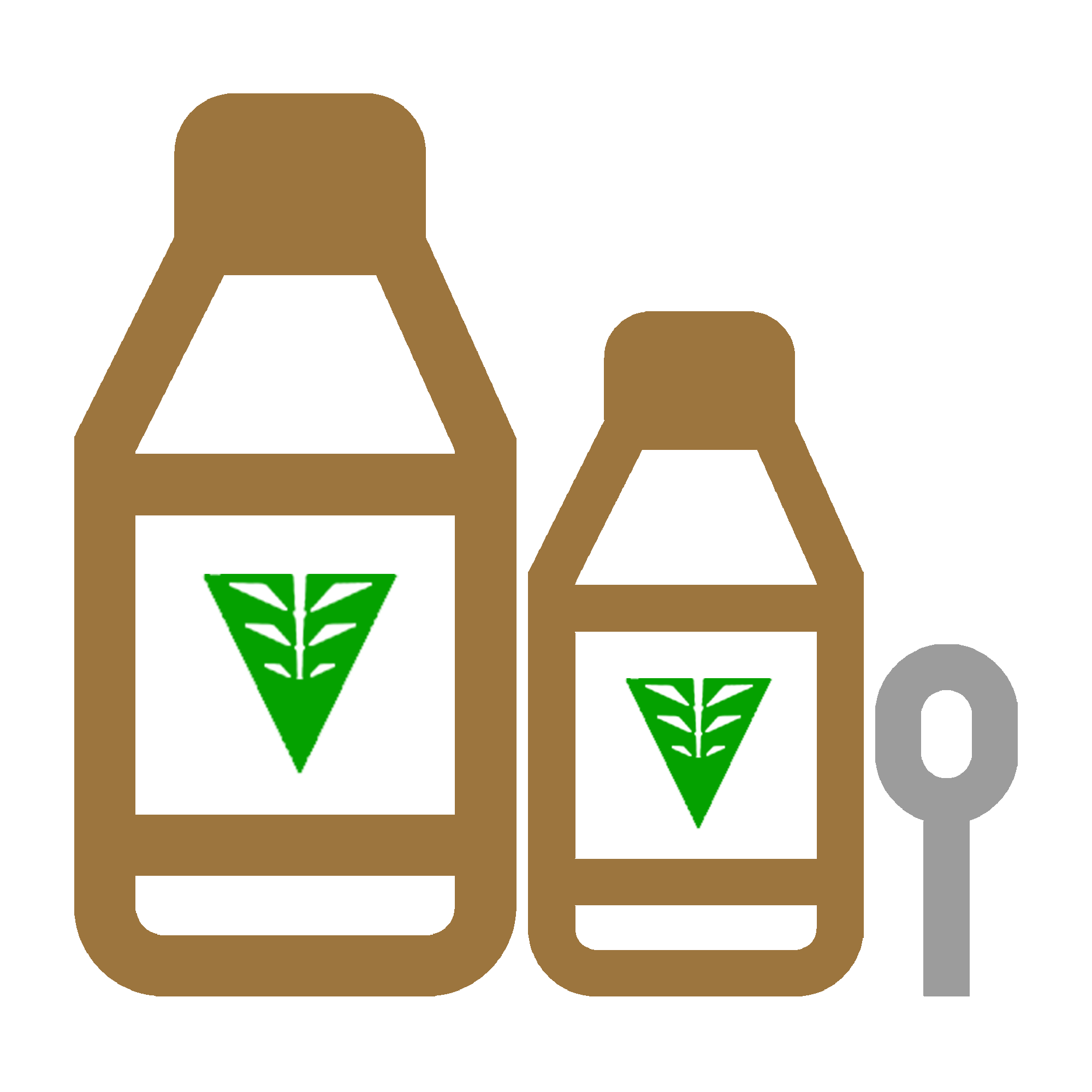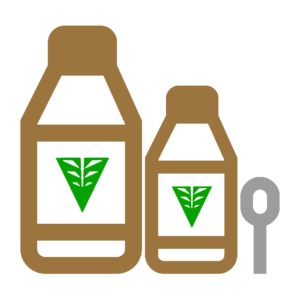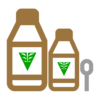ThyroidMore Tonic helps correct a malfunctioning thyroid which is yielding low thyroxin results (hypothyroidism, myxoedema), and addresses the many corresponding symptoms of a soft goitre, apathy, lethargy, slow pulse, low temperature, high cholesterol, weight gain, depression, dry skin, brittle hair, husky voice, heavy menstruation, etc.. This tonic is applicable to both primary (due to the thyroid itself) and secondary (due to pituitary) hypothyroidism. Inadequate iodine supply is an important cause. Many herbs have this constituent and are in this tonic; but it has been found that too much iodine in the body is contraindicated. Certain drugs can bring this condition on, as also foods (see below), along with other causes. Where specific conditions are a problem the treatment also recommends other tonics to be taken alongside the ThyroidMore Tonic for a short time (1-2 months), e.g.WeightLess Tonic (to increase the metabolism), Menorrhagia Tonic (to reduce and regulate heavy periods), Cholesterol-Less Tonic, DepressionLess Tonic, EnergyMore Tonic. ThyroidMore Tonic is also useful for children with this condition.
More info, on thyroid here.
We also recommend that the following foods be avoided while being treated with this herbal tonic: cabbage, kale, cauliflower, spinach, brussels sprouts, soya beans, turnip, beans.
We also recommend that you take ABC Daily Powder. Take a selenium supplement (this is an essential component of an enzyme required by the thyroid gland – take up to 0.2mg daily; or get selenium from wholegrain cereals, fish, egg yolk, meats, liver, kidneys, nuts, mushrooms, asparagus, onions, sea weed foods).
The reason people with hypothyroidism, myxedema, or Hashimoto’s thyroiditis are often advised to limit or avoid certain foods like cabbage, kale, cauliflower, spinach, Brussels sprouts, soybeans, turnips, and some beans is because these foods can act as goitrogens.
What are goitrogens?
Goitrogens are natural substances found in some foods that can interfere with thyroid function, especially in people who already have thyroid issues. They do this primarily by:
- Inhibiting iodine uptake by the thyroid gland — iodine is essential for making thyroid hormones.
- Disrupting thyroid hormone production by interfering with enzymes like thyroid peroxidase.
Key foods and compounds involved:
Cruciferous vegetables (like cabbage, kale, cauliflower, broccoli, Brussels sprouts, turnips) contain glucosinolates, which are broken down into goitrin and other compounds that can reduce thyroid hormone synthesis.
Soy products contain isoflavones, which may interfere with thyroid hormone synthesis and absorption.
Spinach and some beans contain compounds like phytates and oxalates, which may slightly hinder iodine absorption or thyroid function in some cases.
When does it matter?
Raw consumption is more problematic — cooking significantly reduces the goitrogenic activity.
In people with adequate iodine intake, small to moderate amounts of these foods (especially cooked) are usually not an issue.
In Hashimoto’s, where the thyroid is under autoimmune attack, reducing anything that stresses the gland is considered helpful.
The herbs in this tonic include: Gotu Cola, Cordyseps, Black Cohosh, Bladderwrack, Ginkgo, Blue Flag, Shitake, Poke root, Reishi, Ashwagandgha.
We recommend that after you start this herbal medicine at full dose (5ml four times a day in water), you have a blood test each month to assess your progress. Contact herbalist Alan Hopking MA MNIMH for further instructions if required.



